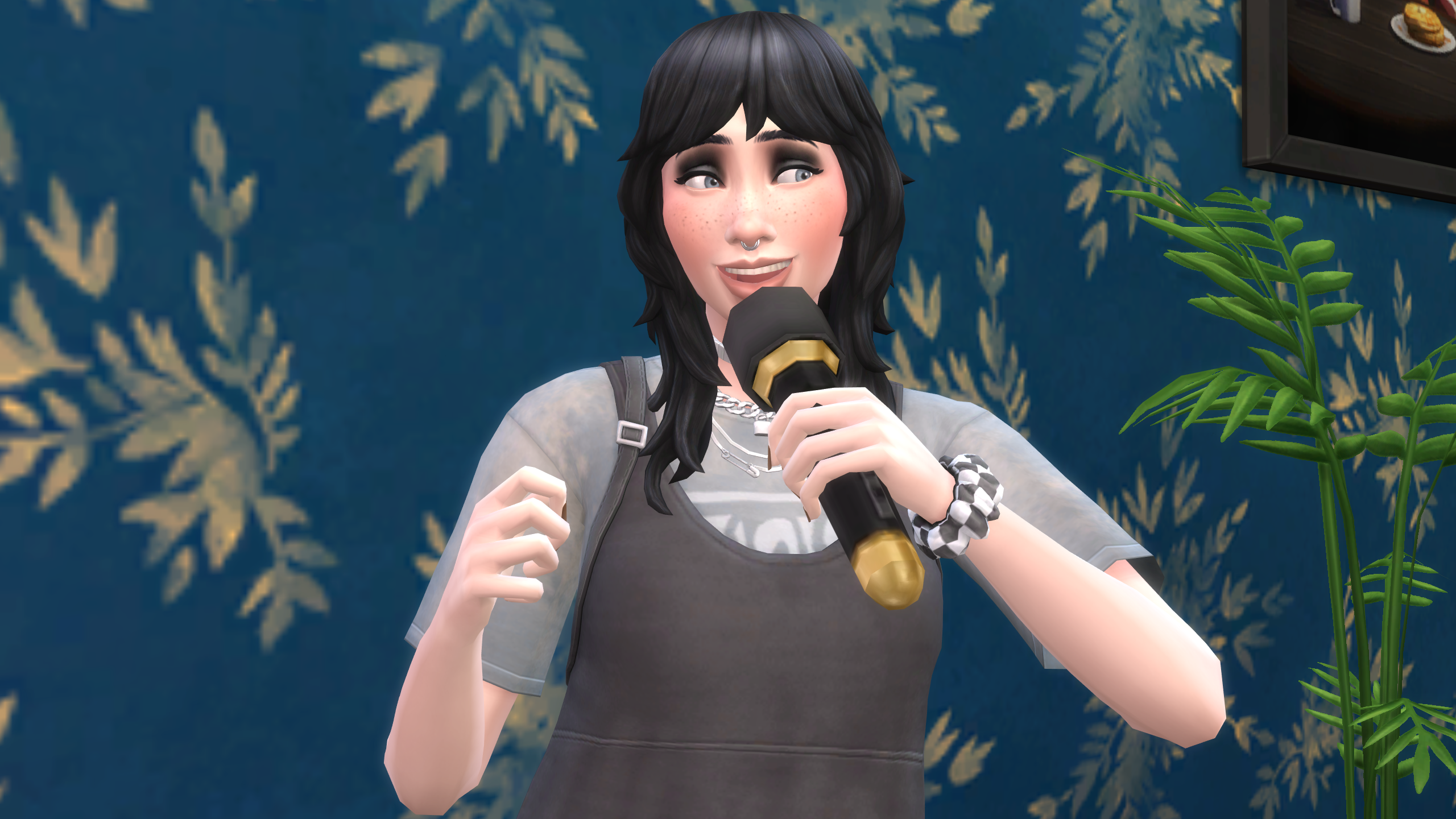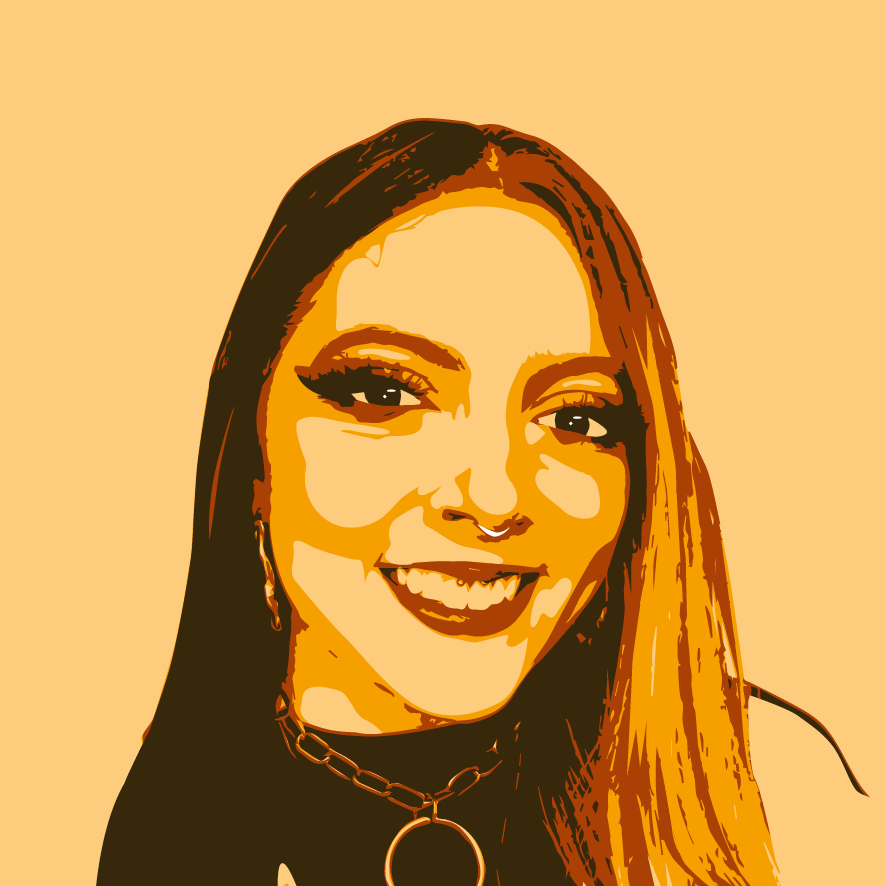It's been 20 years and I still have no idea how The Sims has managed to convince so many artists to rerecord their biggest hits in a gibberish language
The Sims' radio stations are a fantastic musical time capsule.

Keep up to date with the most important stories and the best deals, as picked by the PC Gamer team.
You are now subscribed
Your newsletter sign-up was successful
Want to add more newsletters?

Every Friday
GamesRadar+
Your weekly update on everything you could ever want to know about the games you already love, games we know you're going to love in the near future, and tales from the communities that surround them.

Every Thursday
GTA 6 O'clock
Our special GTA 6 newsletter, with breaking news, insider info, and rumor analysis from the award-winning GTA 6 O'clock experts.

Every Friday
Knowledge
From the creators of Edge: A weekly videogame industry newsletter with analysis from expert writers, guidance from professionals, and insight into what's on the horizon.

Every Thursday
The Setup
Hardware nerds unite, sign up to our free tech newsletter for a weekly digest of the hottest new tech, the latest gadgets on the test bench, and much more.

Every Wednesday
Switch 2 Spotlight
Sign up to our new Switch 2 newsletter, where we bring you the latest talking points on Nintendo's new console each week, bring you up to date on the news, and recommend what games to play.

Every Saturday
The Watchlist
Subscribe for a weekly digest of the movie and TV news that matters, direct to your inbox. From first-look trailers, interviews, reviews and explainers, we've got you covered.

Once a month
SFX
Get sneak previews, exclusive competitions and details of special events each month!
Welcome to Soundtrack Sunday, where a member of the PC Gamer team takes a look at a soundtrack from one of their favourite games—or a broader look at videogame music as a whole—offering a little backstory and recommendations for tracks you should be adding to your playlist.
I've been a huge Paramore fan ever since I heard Pressure an embarrassing number of years ago. But unlike your usual old-school music discovery methods—the radio, bargain bin CDs, listening to your pal's MP3 player—the way I stumbled across what is now one of my favourite bands is a little strange. I actually first heard Hayley Williams warbling in The Sims' nonsense language, Simlish.
It first made an appearance in the console version of The Sims 2, and I was hooked from the very first radio play. It took me some time to realise that Pressure and Paramore was a real song performed by a real artist—listen, I was a child, and a bit of a stupid one at that—but Simlish renditions of real-world songs have since become an integral part of The Sims experience.
Sure, you could probably just add the songs in English and be done with it, but The Sims intentionally avoided using real languages in the game for a reason. Simlish is there to serve as a way for characters to communicate emotions and for dialogue to exist (important in a game all about human interaction) without it feeling repetitive or disrupting player-created storylines.
So that's how we ended up here, two decades later: a whole host of Simlish covers of real songs—most often re-recorded by the actual artists themselves—which still continue to serve as a wonderfully niche method of music discovery for me.
So, how did this even start?
Despite largely existing as a PC game, it was actually the series' console entries that were early pioneers for licensed music performed in Will Wright's fictional language. The Urbz: Sims in the City was the first to go all-out on converting real tracks into Simlish.
Not only did the game's storyline extensively feature The Black Eyed Peas as characters, but the group also provided covers of both Shut Up and Let's Get it Started. Though if the Simlish lyrics are any indication, it was more likely a cover of the song's earlier more expletive version. They also performed a handful of original Simlish songs—I was lowkey devastated to discover that Jaba Dew Wah did not in fact have a real-life rendition.
From there, Simlish cover tracks began creeping into The Sims 2 expansion packs. The game's first one, University, introduced the College Rock radio station along with tracks by Abra Moore, Go Betty Go and The Daylights.
Keep up to date with the most important stories and the best deals, as picked by the PC Gamer team.
I'd argue that the first major one, at least for me, came with Depeche Mode's Simlish version of Suffer Well as part of Open for Business' New Wave radio station in 2006. Things only got wilder from there, with the likes of Barenaked Ladies, Hot Chip, The Pussycat Dolls, Plain White T's, Machine Head, Lily Allen, and Good Charlotte making their way into various expansion packs.
Then, she came along. Katy Perry recorded her track Hot N Cold for final Sims 2 expansion pack Apartment Life and, I assume, enjoyed it so much that she got an entire stuff pack themed around her in The Sims 3 along with a second Simlish track, Last Friday Night.
Going through the list of Simlish tracks over the years feels like a time capsule into pop culture. Artists who used to dominate the charts—I still remember getting all giddy watching Pixie Lott record Mama Do in Simlish for the launch of The Sims 3—and it's honestly wild to see just how big some of the artists are who agreed to sing some of their biggest hits in some loosely constructed gibberish. Hell, My Chemical Romance did a cover of Na Na Na for The Sims 3: Late Night expansion pack. That's literally Gerard Way singing!
Now, in The Sims 4, the game boasts over 100 Simlish tracks, which is wild. Some of them are the return of old faves like my beloved Pressure, but others come from some of the biggest, coolest pop and rock stars of recent years: Charlie XCX, Glass Animals, Lizzo, Trivium, Lola Young, and The Hu.
Hell, last year's Life and Death expansion pack was my introduction to British indie rock band The Last Dinner Party, whose discography has since become a firm staple in my Spotify playlists. Even 20 years later, the games are continuing to broaden my taste in music.
For all the problems I've had with The Sims over the years, its dedication to weaving in pop culture with its own Simlish twist has never been one of them. It's easily one of my favourite things Maxis has continued to do over the years—something so wholly unnecessary when you think about it, but which brings so much life and flavour to the game.

Mollie spent her early childhood deeply invested in games like Killer Instinct, Toontown and Audition Online, which continue to form the pillars of her personality today. She joined PC Gamer in 2020 as a news writer and now lends her expertise to write a wealth of features, guides and reviews with a dash of chaos. She can often be found causing mischief in Final Fantasy 14, using those experiences to write neat things about her favourite MMO. When she's not staring at her bunny girl she can be found sweating out rhythm games, pretending to be good at fighting games or spending far too much money at her local arcade.
You must confirm your public display name before commenting
Please logout and then login again, you will then be prompted to enter your display name.


